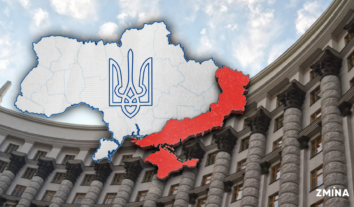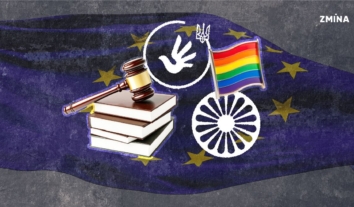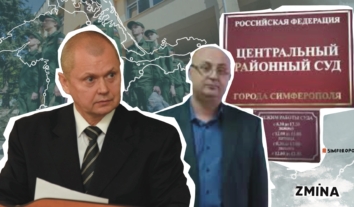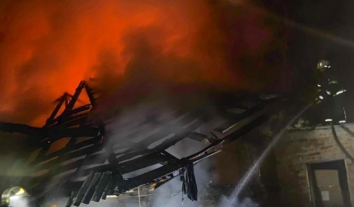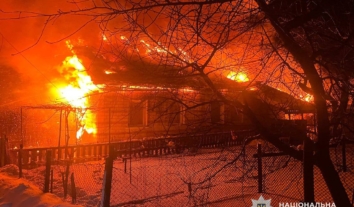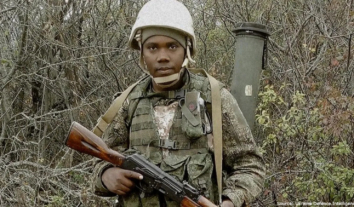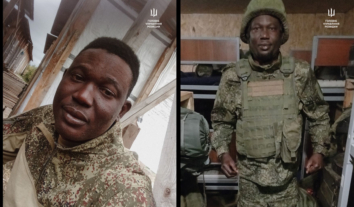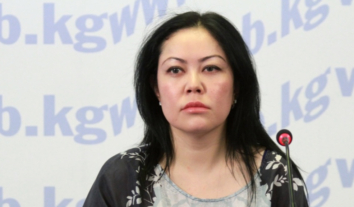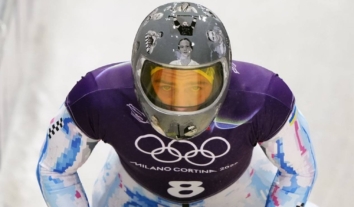Rescuing people or serving the war?
In Ukraine, there are about 1.4 million officially registered internally displaced persons (IDPs), who are in need of support from the state and volunteers. In fact, the volunteers, providing huge help, sometimes replace the state bodies…
Kyiv has recently hosted the conference, at which the European human rights experts and about a hundred Ukrainian activists and volunteers discussed the situation of the internally displaced persons in Ukraine and looked for the ways out.
Switzerland was represented by expert on community development in East Germany and Sri Lanka Jan Zychlinski. Professor of the Bern University of Applied Sciences, social scientist Jan Tsihlinski also studies the living conditions of refugees and internally displaced persons in the South Caucasus.
Jan touched on the issues, which were difficult to accept at first.
“… We do not need this help, but we take it because we do not know what will happen tomorrow,” Jan Zychlinski recalls a meeting with the IDPs and adds, “People get used to expecting help, while we teach them such an attitude.”
“We exist in parallel with the locals”
Having arrived in Ukraine, Jan noticed that the Ukrainian volunteers and civil society in general, the government agencies and actually the IDPs themselves make the usual mistakes, typical of the situation when a state faces the problem of the internally displaced persons.
Thus, when Jan worked with refugees in Germany, hundreds of Germans rushed to help them, bringing clothes, food, necessities … The Germans were happy. They talked about their assistance at home, to the other families, who in turn, also tried to join the “assistance.”
“The refugees arrived in Germany, and the Germans helped them. But they did not have the possibility to come into the ‘wild world’ on their own. I saw a different thing in Georgia. Twenty years on, the displaced persons, who had been settled somewhere and given food sometime ago, told me, ‘We exist in parallel with the locals.’ I’ve seen the bad things also. Of course, it’s good to gather people and provide them with housing, but we need to think what will happen tomorrow? And act step by step then. The finances run out, the resources ends, the volunteers get tired … Meanwhile, people, who have been taught to wait for help, are left alone with their problems ...” Jan notes.
The expert explains that the community is the unity of three elements: people (IDPs, local residents), environment (conditions in which the community currently lives) and structures (e.g. NGOs, associations).
The community can not be separated, but each its component should be active.
“Try to influence the society as a whole, not individual groups (e.g. IDPs). Try to help only in exceptional cases. Yes, it’s a problem and it’s difficult. You get tired of work as it’s a vicious circle: to help one person, another, yet another … Six months on, the story repeats. It happens because the environment does not change, and it’s the thing should be changed,” Jan said.
The most important aspect is not the targeted help, but development of the society as a whole, Jan is convinced. He advises to have patience as sometimes we have to wait for changes longer than we would like to.
Jan reiterates that, having changed the place of residence, people do not change their lives, “but they, taught to wait for help from us, will stop to think for themselves.”
Strengthening volunteer movement
The expert is impressed by such an advanced volunteer movement in Ukraine. However, it may be suppressed by more well-organized structures, such as NGOs, who know how to draft projects and make reports properly. It is they, not the chaotic volunteer movement, whom the funds, donors, and international organizations will provide financial assistance to.
“For example, the CrimeaSOS, launched as voluntary initiative, has a very strong structure. The volunteers told me, “The internally displaced persons believe we are the government agencies.’ It’s no wonder … How many volunteers do I see? And how many donors are cooperating with the volunteers?” Jan asks.
On the other hand, the volunteers are closer to people and know their urgent needs, as opposed to the NGOs, whose aims are not always at the forefront.
The expert suggests that the volunteer network should be strengthened not to run out of energy and resources. To do this, the volunteers need to work with the NGOs, create a lobby to communicate with donors.
“There is one unpleasant element in this system. It is money,” Jan says ironically, adding that we should learn to build partnership and to negotiate.
“What can you do to change the situation?”
Jan does not distinguish between the problems of the internally displaced persons and the problems of local community. The expert is sure that the issues of the community should be addressed jointly.
“Not all the IDPs can get jobs because the local population does not have jobs. Therefore, it is necessary to make efforts to change the environment, improving the socio-economic situation, finding common interests and common problems of the displaced persons and host communities. There is no need to do something special for the IDPs. They may use that, but it won’t be necessary the thing they need,” Jan said.
The expert believes that it is important for people to speak about their daily lives, to know where their former neighbors live, where they friends are now and what they do, etc. At the same time, the people need to be heard. “People can think and act differently. But it is important to ask them the same question: ‘What can you do to change the situation?’” Jan says.
It is important that all people are conscious of their life and know how to cope with difficulties, he says.
“Being a care worker, I’ve made sure not once: people should be taught to solve their problems by themselves, and not to burden them on the shoulders of others, the volunteers for example.
Once I was sitting on a IDP kitchen. I was just listening to what was going on, an interpreter helped me. Within 20 minutes I had so much information about the people, challenges, finding solutions … It is important for these talks not to stay there. However, the kitchen is also a place, where we can encourage people to go to the city council to solve their problems independently.
So here is my wish: try to change the focus not on personal assistance to everyone, but on opportunities for a displaced person to enter the local community and become a part of it,” Jan wished the Ukrainian volunteers.



